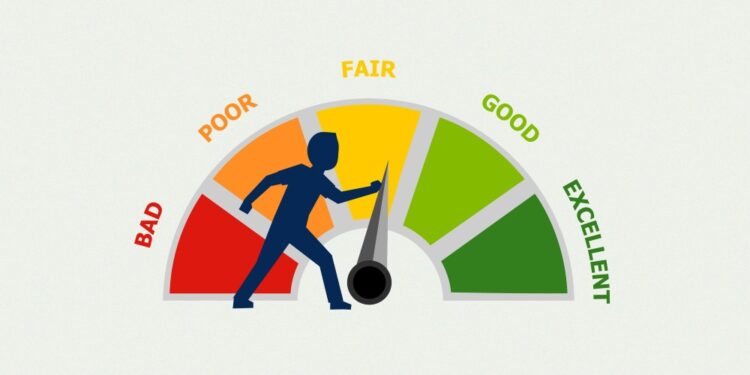Many people who just started using credit cards do not know about their credit score until they attempt to take out a larger loan, buy a house, or make an expensive purchase. Oftentimes, those same people also don’t know how to use them properly, leading them into a debt hole. But understanding what that three-digit number is for is a must to stay on top of your finances. In this article, we will explain everything you need to know about credit scores to help you.
What is a credit score?
A credit score is basically a number ranging from 300 to 850 that reflects an individual’s creditworthiness. In other words, your credit score is what lenders look at to determine if you’re worthy of the loans they offer and what the interest rate will be. Thus, the higher your credit score, the better the loan offers you can get, and vice versa. FICO score is the most well-known credit score model used by various financial institutions.
Your score from each credit reporting agency can be slightly different because each employs a different statistical model. And considering how various lenders have unique criteria for granting loans, where you stand depends on the credit bureau of your lender for your credit score. But to help you get an idea of whether you have a good or bad credit score – here’s the average FICO score range you can look at:
- Poor: 300-579
- Fair: 580-669
- Good: 670-739
- Very Good: 740-799
- Excellent: 800-850
Factors that impact your credit score
Fair credit score determines your credit score by taking into account the following factors.
a. Payment history
It’s the most crucial component of your credit score, which makes up 35% of your overall score. It’s basically a track record of how you manage your debt, like if you’re paying back all your debts on time or not. One late or missed payment can affect your score.
b. Credit utilization or amounts owed
Approximately 30% of your credit score is based on credit utilization. It reveals your credit usage and helps assess your ability to pay what you owe. Nearly maxing out your credit cards or having high outstanding balances are not advisable as they can negatively affect your credit score.
c. Length of credit history
This refers to how long you’ve had and used your credit accounts. Credit history length includes the average age of all your accounts as well as the ages of your oldest and newest credit accounts. If you have a longer credit history, you’ll have a higher credit score.
d. Type of credit
The 10% of your credit score comes from your credit mix. It includes your credit cards, student loans, installment loans, mortgage loans, and more. This component looks at the different sorts of credit you have and how responsibly you use it. For instance, using a credit card to buy a boat can lower your score.
e. New credit (Inquiries)
The remaining 10% comes from the number of credit accounts you’ve recently opened. Applying for new lines of credit in a short amount of time counts as an inquiry, which will potentially lower your score.
How does your credit score affect you?
You must know that your credit score is one of the most critical factors in determining your overall financial health. It affects your ability to get loans, credit cards, and other forms of credit. Additionally, your credit score will determine the interest rate you’ll pay. If you have a good credit score, you may be offered competitive interest rates, unlike if you have a poor score.
With the prices of almost anything going higher, it’s crucial to have a good credit score to stretch your money and stay on top of your finances. Because having a good credit score can help you secure better loans and interest rates easily. And aside from the banks and lenders, landlords, insurance companies, and even your potential employers may look at your credit report and credit score for use in their application process. They use that data to check if you’re an efficient and reliable person.
Tips to improve your credit score
Improving your score will be easy once you understand the reasons why it’s low. While it may take some time and work, creating good habits now can help you raise your score down the road. You start by obtaining a copy of your credit report and concentrate on addressing the factors lowering your score. Here are some general tips you can follow:
- Always pay your bills on time.
- Pay down your debts – avoid having outstanding balances on any open credit cards.
- Make outstanding payments.
- Always review your credit report and dispute any errors in it.
- Minimize requesting new lines of credit.
- Keep some old accounts open; closing them completely might negatively impact your debt-to-credit ratio.
Bottom line
When using credit, it’s always crucial to understand your credit score to maximize its potential. That simple three-digit number affects your ability to qualify for loans and other financial products. In addition, it gives you an idea of your financial health, which can help you make more informed decisions on your finances. In the long run, you can save money by knowing the interest rates you may qualify for.


































































































































































































